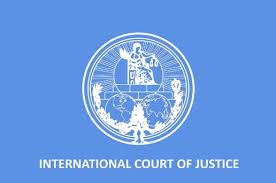Difference Between Municipal Law and International Law
📘 Difference Between Municipal Law and International Law
Introduction:
Both Municipal Law and International Law govern human conduct, but they operate in different spheres, apply to different subjects, and have distinct mechanisms of enforcement. Understanding their differences is key to grasping how law functions at national and international levels.
Definitions:
Municipal Law (Domestic Law):
The body of law that governs relations within a particular state or country. It includes criminal law, civil law, constitutional law, etc., and regulates the behavior of individuals and institutions inside the state.
International Law:
The body of rules and principles that governs relations between sovereign states and other international actors. It deals with rights and duties of states and international organizations.
Detailed Comparison:
| Aspect | Municipal Law | International Law |
|---|---|---|
| Definition | Law governing individuals and entities within a state. | Law governing relations between sovereign states and international entities. |
| Subjects | Individuals, corporations, government entities within the state. | Sovereign states, international organizations, and sometimes individuals. |
| Sources | Constitution, statutes, judicial decisions, administrative regulations. | Treaties, customs, general principles of law, judicial decisions (ICJ), and writings of jurists. |
| Scope | Applies within the territorial boundaries of a state. | Applies between states and across international borders. |
| Enforcement | Enforced by police, judiciary, and other state authorities with coercive power. | Largely depends on consent of states; enforcement is voluntary and often political; UN Security Council may enforce decisions. |
| Nature | Hierarchical system with a supreme authority (e.g., constitution or legislature). | Decentralized system; no single supreme authority; based on sovereign equality of states. |
| Sanctions | Clear penalties such as fines, imprisonment, or other punishments imposed by courts. | Sanctions are diplomatic, economic, or military; judicial sanctions are limited and rely on state compliance. |
| Legislative Power | Laws are enacted by the state’s legislature or sovereign authority. | Laws are created through treaties and customs agreed upon by states; no legislature. |
| Change and Amendment | Changes through legislative process, judicial interpretation, or executive action. | Changes by new treaties, evolving customary law, or consensus of states. |
| Examples | Criminal law, contract law, property law, constitutional law. | Law of treaties, law of the sea, international humanitarian law, human rights law. |
Further Explanation:
1. Subjects and Scope:
Municipal law governs individuals and legal persons within a state’s territory.
International law governs relations between states and international entities across borders.
2. Enforcement:
Municipal law has coercive enforcement through police and judiciary.
International law largely relies on voluntary compliance and diplomatic pressure, lacking a central enforcement authority.
3. Sources and Formation:
Municipal laws are enacted by a sovereign legislature or created through judicial decisions.
International law develops from treaties (agreements), customary practices, and general principles recognized by nations.
4. Nature of Legal System:
Municipal law is a hierarchical, centralized system with courts and enforcement agencies.
International law is a decentralized system respecting the sovereignty and equality of states.
Interrelationship:
Municipal law incorporates international law in many ways, especially when a country ratifies treaties or enacts laws complying with international obligations.
Some international law principles require states to harmonize their municipal laws (e.g., human rights conventions).
In case of conflict, states often give priority to municipal law unless they have explicitly incorporated international law.
Summary Table:
| Feature | Municipal Law | International Law |
|---|---|---|
| Governs | Individuals within a state | Relations between states |
| Authority | State sovereignty and legislature | Sovereign equality of states |
| Enforcement | Coercive, through courts and police | Voluntary, political enforcement |
| Source | Constitution, statutes, case law | Treaties, customs, general principles |
| Sanctions | Fines, imprisonment, penalties | Diplomatic, economic, military |
| Scope | Within national borders | Across international borders |
Conclusion:
Municipal Law maintains order within a state by regulating individual behavior.
International Law maintains order among states by providing a framework for peaceful coexistence and cooperation.
Both systems coexist and interact but function in different realms with distinct mechanisms.












comments